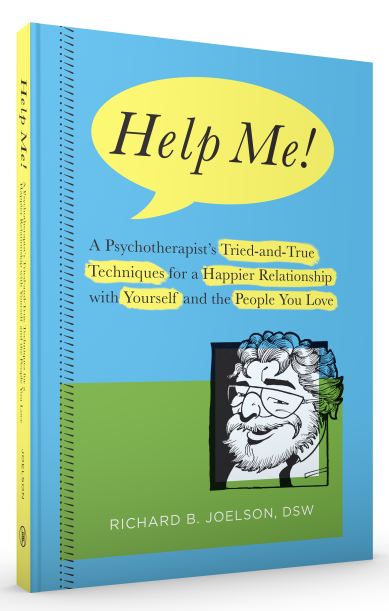The following are some examples of distorted negative thinking that most likely explain why people become anxious or depressed. Recognizing them and taking steps to change them can help regulate one’s self-esteem and diminish the frequency and intensity of anxious and depressed states.
- Catastrophizing – when you exaggerate the harmful effects or importance of something that happens to you. An example might be the person who receives mild criticism from his boss and becomes certain that he will be fired.
- Personalizing – when you see yourself as the cause of a negative event even when there may be no rational basis for doing so. Your child fails a test, and you assume it’s because you’re a bad parent. Or, when a new and promising romantic partner is not heard from, you conclude that whatever happened must be your fault.
- All-Or-Nothing Thinking – involves the tendency to reduce complex situations to absolutes or to view things in black-or-white terms. This is a common irrational thought pattern that can inspire a depressive state or an episode of anxiety. You know you’re not perfect, so you believe that you are a total loser. You have a losing night at the poker table, so you must be the worst poker player in the world.
- Overgeneralizing – when you interpret one unpleasant situation as part of an endless pattern. A quite successful and accomplished client of mine and his wife were outbid on a new house they eagerly wished to own. He concluded that he “never” has any luck at “anything” and is “always” unsuccessful in getting what he wants.
- Mental Filtering – occurs when someone focuses on the bad while screening out the positive. I once presented a student with an evaluation of her yearlong clinical internship. The report contained numerous and enthusiastically expressed positive comments along with one mild criticism. After reading the report, her only reaction was, “But I don’t do that anymore,” in reference to the criticism, without any acknowledgment of the extensive praise.
Many clients have been helped by the development of what I refer to as the “third eye” and the “third ear,” a means of helping people become more aware of their tendency to engage in some of the irrational thought patterns described above. Essentially, clients observe themselves objectively in order to control reactive behavior. This facilitates one’s ability to try more rational and positive ways of thinking and feeling on the way to improved self-esteem, as well as less anxiety and depression in their lives.
